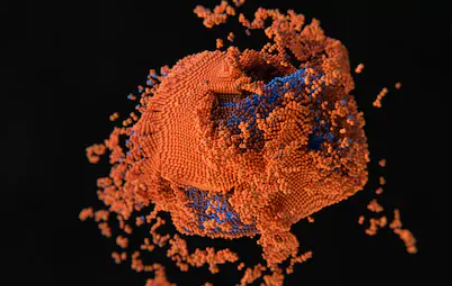Caspase is a family of cysteine proteases that play essential roles in apoptosis (programmed cell death), necrosis, and inflammation. There are two types of apoptotic caspases:

Creative Bioarray has a professional apoptosis research platform. Our services include but are not limited to:
Selection of Caspase Pathway Target
Caspase can participate in the regulation process of cell death, inflammation, cell proliferation and differentiation called apoptosis. Depending on the stimulus and cell type, different combinations of caspases will participate in the corresponding pathways.
Creative Bioarray can conduct a large amount of literature research and biological information analysis based on your research purposes, from gene sequence to crystal structure, from genomics to proteomics, to help you conduct target analysis and determine the target. The information compiled at this stage is particularly important and will directly influence and guide the entire process of new drug development.
Screening of Small Molecule Caspase Modulators
Development of caspase inhibitor
One of the main concerns in the development of drugs for apoptosis is the design of effective caspase inhibitors. The enormous potential of caspase inhibitors has been demonstrated with prototype inhibitors in several animal models.
A typical caspase inhibitor consists of an electrophilic group termed the ‘warhead’, the P1 aspartic acid and the P2–P4 peptidomimetic region. The active warhead of a caspase inhibitor is the critical part. It not only determines the reversibility of caspase inhibition, but might also cause side effects due to the interference with other cysteine proteases. The C-terminal warhead is responsible for the reactivity of an inhibitor, and the N-terminal modifications alter its effectiveness by influencing cell penetration. The P2–P4 peptidomimetic region is the most variable part of the inhibitor and imparts the selectivity for certain caspases.
Development of caspase activator
Besides inhibition of caspases to suppress cell death, the activation of the death machinery by caspase activators, might be a valuable tool, especially in the therapy of human cancers. Several institutions and companies perform high-throughput screening assays for compounds that could induce caspase activity either in living cells or in vitro. In conclusion, the fact that structurally unrelated compounds, identified in independent screens, converge at the level of apoptosome formation or caspase activation suggests that screening for small-molecule caspase modulators might be a valid approach.
Creative Bioarray has many years of experience in screening and development of small molecule regulators, and can provide customers with a variety of high-quality services. We can design and plan experimental schemes according to the specific needs of customers, provide customers with suitable solutions, and help you quickly find compound structures with development potential in the early stage of research.

Professional Platform and Excellent Team
We have a professional technical platform, equipped with advanced instruments and talented and well-trained experts.
Committed to Quality
We put quality first. We provide high-quality products, services and solutions to support customers worldwide.
World-class Service Capabilities
We provide one-stop service, from order to final report, to provide the best solution for your research. We hope to help you complete your research more easily and efficiently.
Customer-centric
We adhere to a mutually beneficial and win-win cooperation model, pay attention to customer needs and goals, and create the greatest value for customers.
If you are interested in our services, please contact us for more detailed information.
Online Inquiry